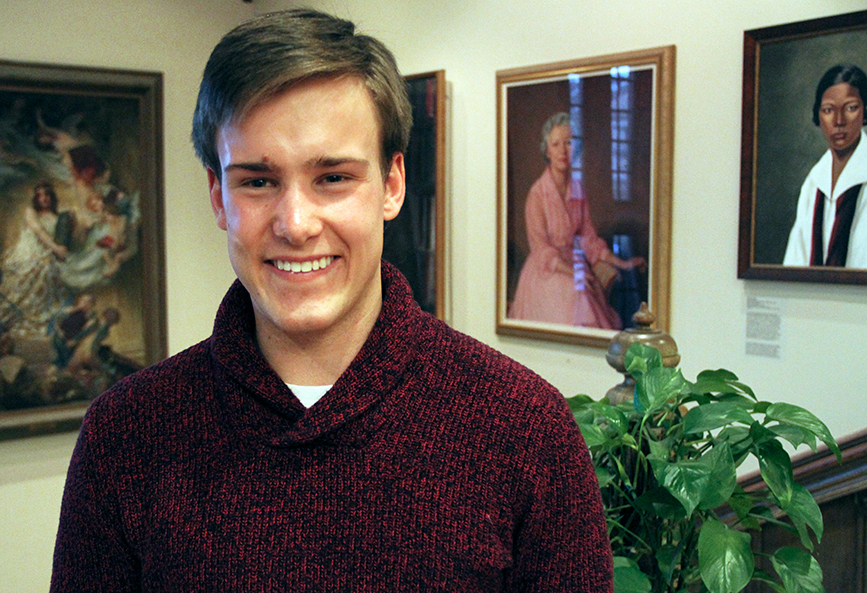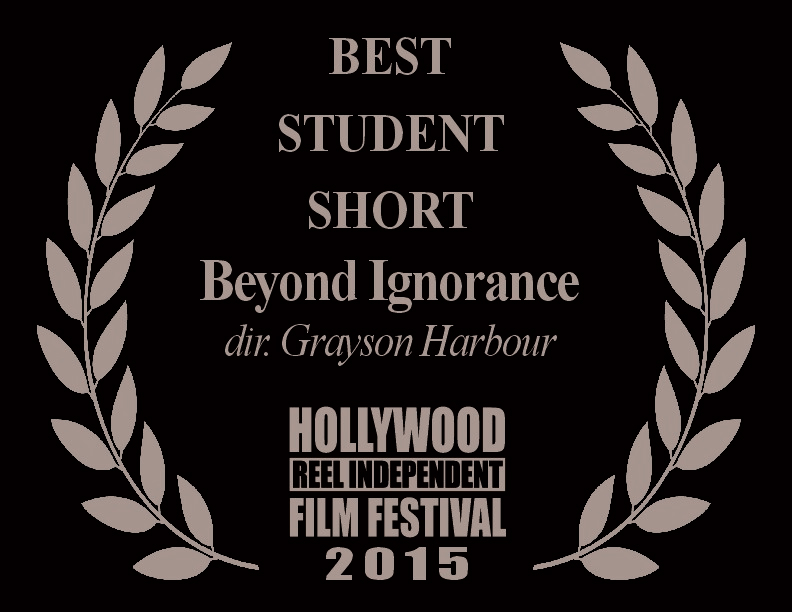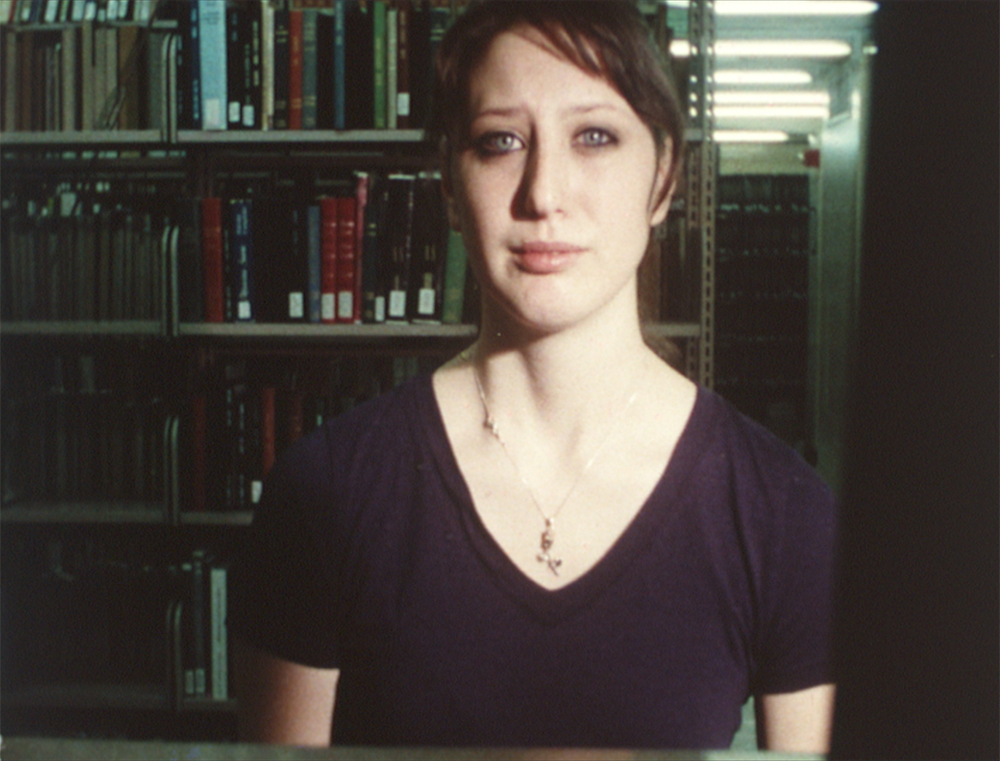Grayson Harbour wins festival’s best student short film prize

Indiana University senior Grayson Harbour has won the Best Student Short category in the annual Hollywood Reel Independent Film Festival for his film Beyond Ignorance.
And he’ll accept the award Friday night at Hollywood’s New Beverly Cinema, where he’ll walk down the red carpet to his seat and will take the stage to give an acceptance speech.
Glamour aside, Harbour said the project represents many hours of thought and work. Beyond Ignorance was the final project for C360 Intro to Filmmaking class, directed by lecturer Susanne Schwibs and taught by communication and culture doctorial student Russell Sheaffer.
Harbour worked on the film spring semester of 2014 and continued to perfect it over the summer. To enter into the Hollywood Reel Independent Film Festival, Harbour submitted his work in a digital format by the end of summer.
“Russell is my film oracle,” said Harbour. “He took me from knowing probably nothing about film and filmmaking to Hollywood and winning a film category, which is amazing.”
Sheaffer said Harbour’s willingness to be pushed outside his comfort zone played a major role in his success in filmmaking.
“He’s incredibly ambitious and really not fazed by anything. You have to be able to deal when something goes awry,” said Sheaffer, also a filmmaker with competition experience. “You have to be flexible, and the class forces you to be flexible very quickly.”

The three types of cameras the class uses require a specific exposure or the film will be too shadowy or bright. Entire rolls of film can be sent off to the lab, only to come back overexposed from too much light.
“Grayson was able to learn from those moments where you get the film back and it’s not what you had intended,” Sheaffer said.
Four rolls of film were used to make Beyond Ignorance, a silent film that is a little more than four minutes long. For the film, Harbour he used an old-fashioned Bolex 16 millimeter hand-crank camera and edited the film by hand.
He said using a camera without a viewfinder was a challenge because he did not know exactly what would be in the shot. And, editing by hand requires patience, for the editor must cut and tape the film to capture the right moments. Students Macey White, Jake Boris and Benjamin Nichols worked with Harbour on the editing process.
During editing, Harbour also employed a technique called double exposure, which is essentially putting an image over the original shot.
The equipment and techniques enhanced the story, Harbour said.
“It’s an art piece about a student who finds a magic book in the stacks that gives her the ability to absorb information through touch, and she uses it to cheat on her statistic exams,” he explained.

Actress Lauren Math played the role of female student, and the film featured Ansa Woo acting as the professor. Over the summer, Harbour hired Cameron Prill from Ball State to compose original music for the short film.
The idea of entering the project in a contest is part of the class experience. Sheaffer teaches his students about the festival submission process during the last week of class. His own experience includes films that won prizes in film festivals such as the Tribeca Film Festival.
Schwibs said guiding students through the creative stage and technical work are central to the class, whether their work lands at a festival or not.
“I love this class in particular because it’s not an easy class, but you have to imagine what you want to do before you actually do it. I think that is great for learning,” she said. “A creative person will always rise to that challenge.”
Harbour’s trip to California is proof he met that challenge, but winning a prize means even more than these accolades, Schwibs said.
“I really think that’s a wonderful experience, and not just as a reward because he did a wonderful film and it’s being recognized, but it’s also a great learning experience because now you’re suddenly rubbing elbows with other filmmakers. He gets the chance to represent who he is as a filmmaker,” she said.
More:

